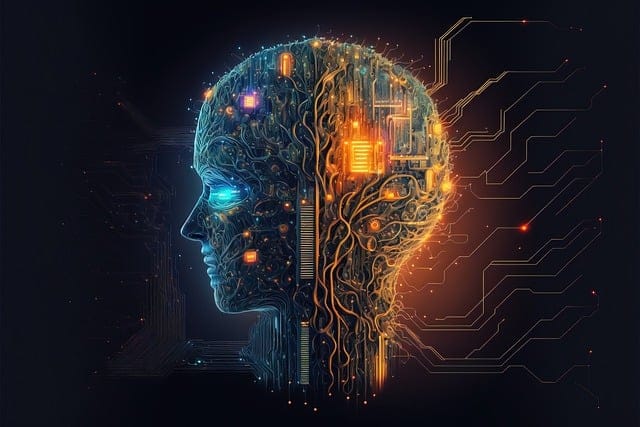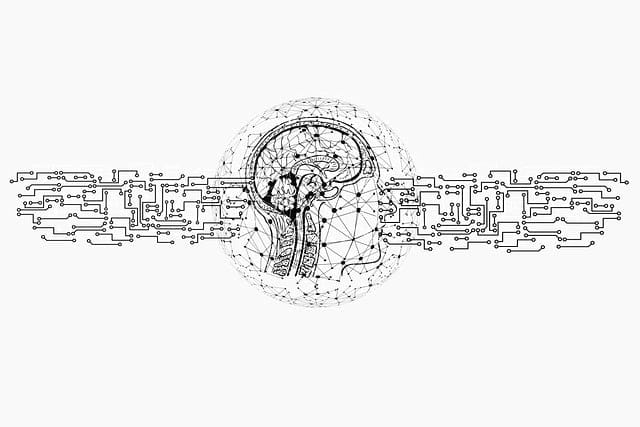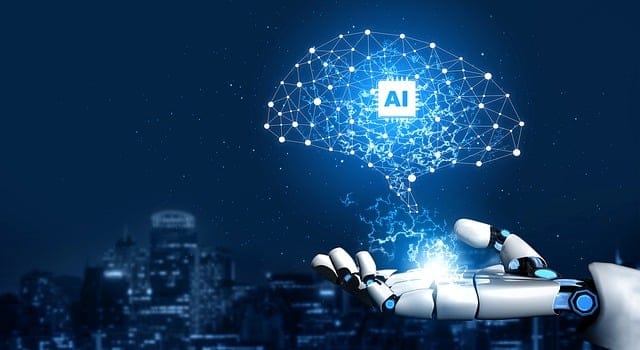
Picture this: AI algorithms sifting through mountains of patient data faster than you can say “supercomputing.” By analyzing patterns and trends, AI can help doctors zero in on diseases before they even show symptoms. It’s like having a crystal ball that foresees health issues, enabling preemptive measures that could save lives. Ever thought about how much time can be saved in getting a diagnosis? With AI, patients can potentially receive results in mere moments instead of waiting for days or weeks, turning the stress of uncertainty into relief.
Moreover, let’s talk about tailored treatments. Just as a great tailor fits a suit to your unique measurements, AI can analyze individual patient profiles, including genetics and lifestyle choices, to suggest personalized treatment plans. This means no more one-size-fits-all approach. Treatment can be as unique as a fingerprint, improving efficacy and reducing side effects.
But wait, there’s more! AI is also enhancing the patient experience, making it smoother and more interactive. Virtual health assistants can answer your queries 24/7, giving you health tips or reminders to take your medication—like having a mini healthcare coach right in your pocket.
Revolutionizing Patient Care: How AI is Shaping the Future of Healthcare
Now, think about all those times you’ve waited hours for a simple diagnosis or treatment plan. AI swoops in to cut that time down dramatically. It can analyze data in seconds that would take a human a lifetime. By sifting through mountains of medical records and research, AI identifies patterns and insights that help healthcare providers make faster and more accurate decisions. It’s like having a super-smart assistant that never sleeps!
But wait, there’s more! Picture how AI is transforming remote patient monitoring. With smart devices and wearables, patients can now track their symptoms in real-time. This means doctors aren’t just guessing what’s wrong based on a brief office visit; they can make decisions based on continuous data. It’s like having a health check-in buddy that you don’t have to pay for!
Then there’s the role of virtual assistants in healthcare. Instead of navigating complex healthcare websites or waiting on hold for ages, patients can chat with AI-powered assistants that help them schedule appointments, order prescriptions, and get answers to their pressing questions. It’s like having a 24/7 helpdesk right in your pocket.

As if that weren’t enough, AI is also taking on the heavy lifting in drug discovery. Those lengthy trials and testing phases? AI can streamline these processes, making breakthroughs happen faster than we can say “medical innovation.” So, while we can’t predict every twist in the road of healthcare, it’s safe to say that AI is paving a smoother path for us all.
AI in Healthcare: The Diagnostic Game-Changer That’s Saving Lives
AI in healthcare is like having a superpowered detective that sifts through mountains of medical data in a blink. It can spot patterns that even the most seasoned physicians might overlook. Do you know that AI can analyze thousands of images in a heartbeat? For instance, in radiology, machine learning models can identify cancers in scans more accurately than some human experts. It’s like having an extra pair of eyes that never tire—just imagine the comfort of knowing your diagnosis is backed by an AI’s meticulous analysis!
Now, let’s talk about the speed and efficiency that AI brings to the table. Traditional diagnostic processes can drag on, but AI models can condense this into minutes. This rapid response is crucial when every second counts—like during a heart attack or a stroke. Wouldn’t you want a system that can provide critical insights when time is of the essence?
From Diagnosis to Treatment: The AI Innovations Reshaping Patient Experience
Think about it: your doctor may soon use AI-driven tools that analyze your symptoms and medical history faster than you can say “healthcare.” By tapping into vast databases of medical knowledge, these smart systems can bring unique insights that help in delivering accurate diagnoses. It’s like having a super-smart assistant by your doctor’s side, sifting through mountains of healthcare data to ensure you’re getting the right care—quickly and efficiently.
But the journey doesn’t stop at diagnosis. Once you know what you’re facing, AI continues to step up its game. Picture algorithms that customize treatment plans specifically for you, considering not just your illness but your lifestyle and preferences. It’s like having a bespoke healthcare experience tailored just for you! This personal touch enhances not just the effectiveness of treatment but also boosts your confidence and optimism about recovery.

Have you ever found health-related information overwhelming? AI can simplify that, too. With chatbots and virtual health assistants available 24/7, you can get answers to your health questions at any time. It’s as if you have a friendly healthcare expert in your pocket, ready to help you navigate the often confusing world of treatments, medications, and follow-ups.
As AI continues to evolve, the way we experience healthcare is becoming more intuitive, accessible, and personalized. Embracing these innovations means a brighter, healthier future where patients are at the heart of healthcare innovation. Who wouldn’t want that?
The Rise of AI: Transforming Traditional Healthcare into Smart Patient Solutions
Have you ever wondered how AI can remember your medical history better than you do? With robust algorithms processing massive amounts of data, AI can identify patterns that help doctors make informed decisions faster. It’s like having a super-smart assistant that makes sense of all your health info in a flash. This means fewer misdiagnoses and more accurate treatments, saving time and, let’s be honest, a fair bit of stress!
Picture AI as the ultimate GPS for your health journey. Whether it’s recommending the right medication or flagging potential health issues before they escalate, AI can guide you through complex medical landscapes. And let’s not overlook the virtual health assistants that can answer your concerns at 2 AM. It’s like having a doc in your pocket!
Then there’s telemedicine, which has exploded thanks to AI. You can consult with healthcare professionals from the comfort of your home – no more sitting for hours in a waiting room. It’s convenience wrapped in a caring digital embrace.
In a world where technology evolves at lightning speed, AI stands at the forefront of this transformation, bridging gaps and connecting patients with the personalized care they deserve. So, if you’re skeptical about AI’s role in healthcare, just think about how it could change your own patient experience!
Personalized Medicine: How AI is Tailoring Treatments for Individual Patients
So, how does this magic happen? It starts with data. Think of it as feeding a brilliant mind with a treasure trove of information. AI analyzes vast amounts of medical data—genomic sequences, clinical histories, and even lifestyle choices—like a detective piecing together clues. This involves everything from DNA tests to lifestyle surveys, allowing healthcare providers to build a comprehensive picture of what makes you, well, you.
Ever noticed how some medications work wonders for some people but flop for others? AI sifts through all that data to identify patterns and predict which treatments will work best for you. It’s like having a personal health coach who knows your body inside and out, guiding you through your wellness journey. Plus, with machine learning, the more data AI processes, the smarter it gets. It learns from each case, refining its recommendations and improving outcomes one patient at a time.
Frequently Asked Questions
What Are the Benefits of AI in Medical Imaging?
AI enhances medical imaging by increasing accuracy in diagnosis, reducing processing time, and providing advanced analytical capabilities. It aids in detecting diseases early, personalizing treatment plans, and improving patient outcomes, ultimately streamlining workflows in healthcare settings.
What is AI’s Role in Enhancing Patient Care?
Artificial intelligence enhances patient care by improving diagnostic accuracy, personalizing treatment plans, and streamlining administrative processes. AI tools analyze vast amounts of medical data to identify patterns and trends, assisting healthcare professionals in making informed decisions. Additionally, AI-powered applications help monitor patient health in real-time, making healthcare more proactive and responsive.
What Challenges Does AI Face in Healthcare Implementation?
Integrating AI into healthcare presents challenges such as data privacy and security concerns, the need for high-quality and diverse data, regulatory compliance, the potential for bias in algorithms, and the requirement for healthcare professionals to adapt to new technologies. Overcoming these hurdles is essential for maximizing the benefits of AI in improving patient care and operational efficiency.
Can AI Help in Predicting Patient Outcomes?
Artificial Intelligence can analyze vast amounts of patient data to identify patterns and trends, aiding healthcare professionals in predicting patient outcomes. By utilizing algorithms and machine learning techniques, AI tools can enhance decision-making, improve treatment plans, and ultimately contribute to better patient care and recovery rates.
How Does AI Improve Diagnostic Accuracy?
AI enhances diagnostic accuracy by analyzing vast amounts of medical data quickly and accurately. Through machine learning algorithms, it identifies patterns and anomalies in patient data, leading to earlier and more precise diagnoses. By supporting healthcare professionals with data-driven insights, AI reduces the rates of misdiagnosis and improves patient outcomes.







